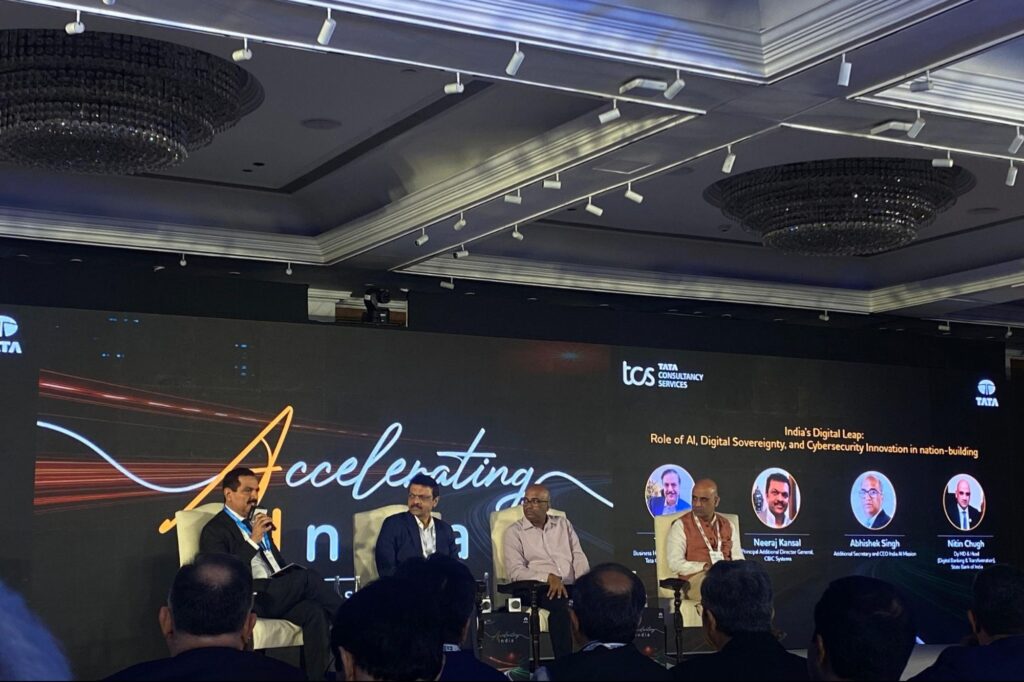Opinions expressed by Entrepreneur contributors are their own.
You’re reading Entrepreneur India, an international franchise of Entrepreneur Media.
India’s Evolving Digital Transformation
As India embarks on the next phase of its digital evolution, the emphasis is shifting from building infrastructure to implementing intelligent transformations. This new focus involves utilizing AI, cloud sovereignty, and cybersecurity as foundational elements for nation-building efforts.
Advancing Digital Public Infrastructure
India’s digital public framework, which includes Aadhaar, UPI, DigiLocker, and over 4,000 online services, has facilitated widespread access to critical government services. The current aim is to enhance this system with AI-powered, multilingual, and real-time service delivery options.
“There are over a billion transactions occurring daily on the Digital Public Infrastructure,” stated Abhishek Singh, Additional Secretary at MeitY and CEO of India AI Mission. “With AI, we can further this initiative by enabling voice-activated services that handle unstructured queries in regional dialects. For example, a farmer inquiring in his local language could receive precise crop health advice, showcasing AI’s potential.”
Inclusive Design for Diverse Needs
Singh highlighted that India’s vast diversity necessitates inclusive design. Utilizing Natural Language Processing (NLP) and Generative AI, public services could soon be more accessible, even for those with limited digital skills.
To hasten the transition from infrastructure to intelligence, companies like Tata Consultancy Services (TCS) are leading the charge. Recently, TCS introduced a suite of digital solutions designed to enhance India’s self-reliance in technology. Their innovations include TCS SovereignSecure Cloud™, a domestic cloud service for public sector entities; TCS DigiBOLT™, a low-code AI-driven platform; and an expanded TCS Cyber Defence Suite.
Revolutionizing Trade with AI
Transformations in India’s customs operations aim to cut clearance times for shipments from 72 hours to just one. This is being achieved through intelligent automation, real-time risk assessments, and deep integration with various governmental bodies like FSSAI and the Textile Ministry.
“We’re working on Customs One,” said Neeraj Kansal, Principal Additional Director General at CBIC Systems. “This ambitious project will enable clearances to occur even before goods arrive, made possible by advanced AI models for document validation and risk evaluation.”
Transforming Banking with Agentic AI
In the financial sector, artificial intelligence has already become integral to daily operations, particularly in decision-making and fraud detection. However, the forthcoming change involves agentic AI systems that may redefine banking paradigms entirely.
“We’ve long utilized AI and machine learning models, but the next evolution will be transformative,” noted Nitin Chugh, Deputy MD and Head of Digital Banking at State Bank of India. “Agentic AI will transition from backend functions to frontline interactions, potentially reshaping the core framework of banking.”
Democratizing Cloud Infrastructure
Cloud sovereignty is increasingly pivotal in India’s digital governance strategy. Rather than establishing large-scale infrastructure, the focus is on creating an ecosystem that democratizes access to computing resources, enabling private sector investments while the government facilitates affordability.
“Instead of building our own data centers during the GPU surge, we chose to create an access platform,” explained Singh. “With rapid technological advancements, government procurement cannot keep up, so we prioritize subsidizing access instead.”
Rethinking Data Usage
Once viewed as a burden, data is now being recognized as a vital asset that fuels AI and informs public policy. AI is transforming static datasets into dynamic tools for more informed decision-making.
“Data has transitioned from being perceived as a liability to serving as a cornerstone for intelligent systems,” Kansal remarked. “Our aim is to achieve a fully paperless future through proactive, AI-driven governance.”



